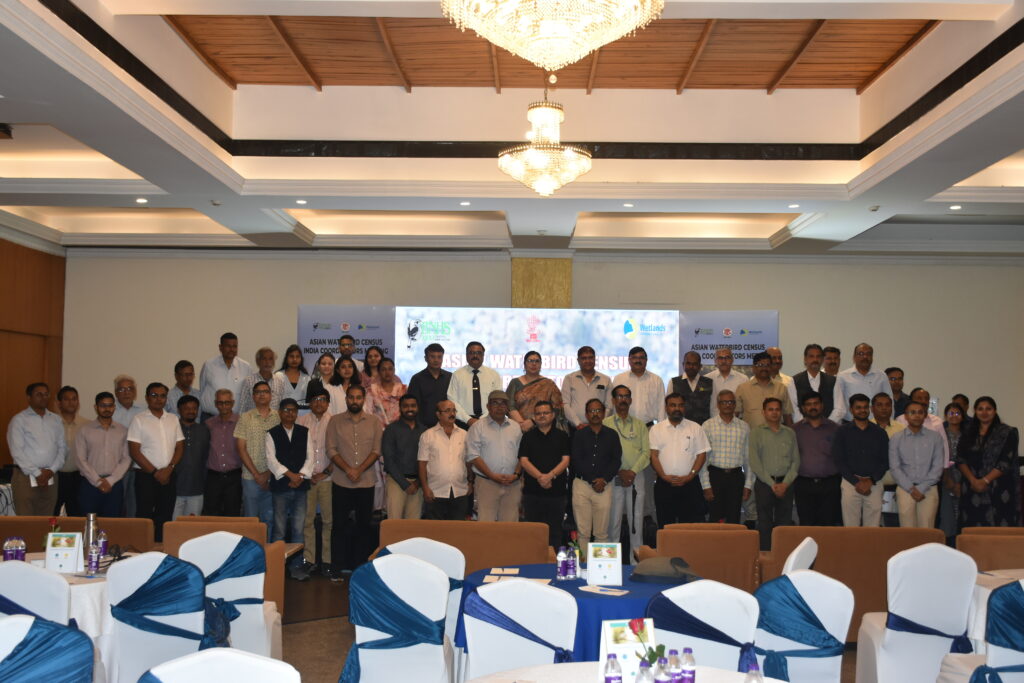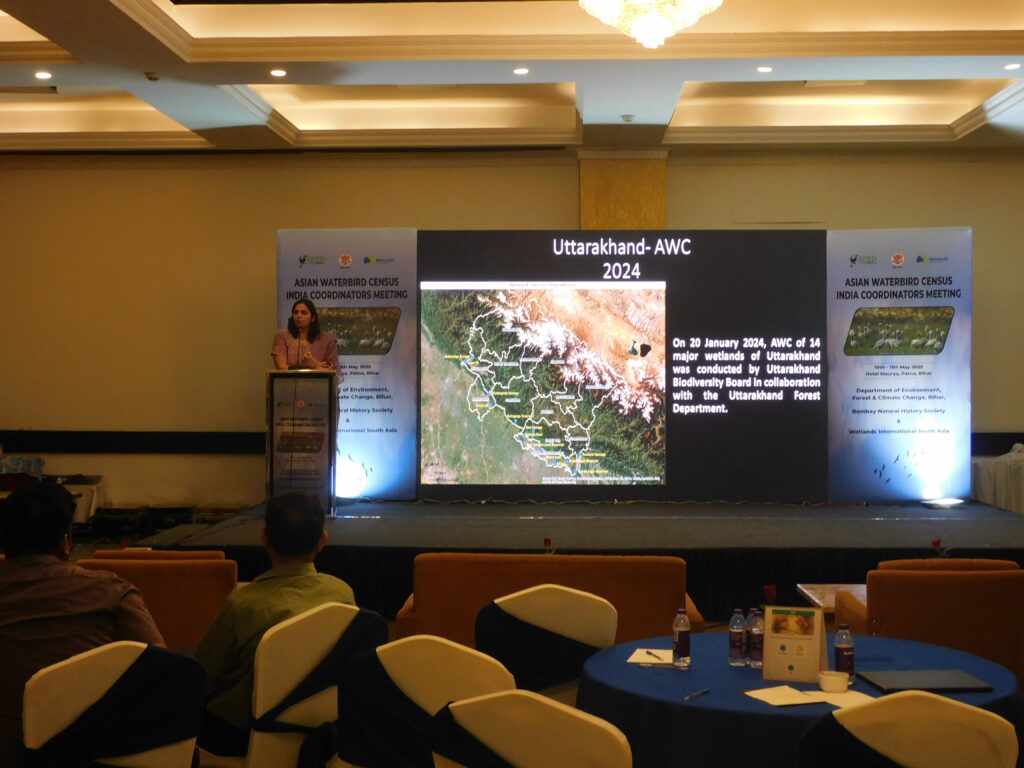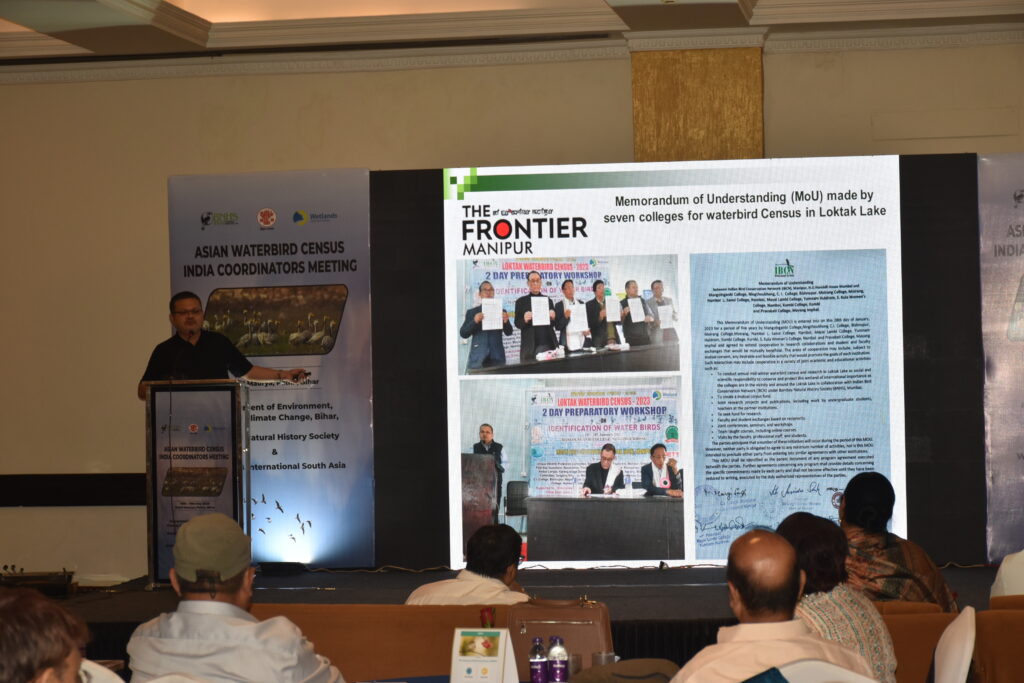
AWC India Coordinators Meet Held in Patna on World Migratory Bird Day, May, 2025
-
Asian Waterbird Census
-
Capacity development
-
Healthy Wetland Nature

The Asian Waterbird Census (AWC) India Coordinators Meeting was held in Patna, Bihar on May 10–11, 2025, coinciding with World Migratory Bird Day 2025. The gathering brought together AWC state coordinators, experts, and partners to reflect on recent progress, share experiences from various States / UTs, and plan next steps for strengthening the wetland and waterbird monitoring across India.
Hosted by Wetlands International South Asia and Bombay Natural History Society, with support from the Forest Department of Bihar, the meeting aimed to review the implementation of AWC, enhance coordination across states, improve data quality and use, and shape a long-term strategy for regular monitoring of key wetlands.
The two-day agenda featured updates from various States and UTs, including a detailed look at the institutionalised AWC efforts in Bihar, and presentations from state coordinators covering site coverage, bird count trends, and local challenges and opportunities related to coordinating AWC at national and state levels. Breakout discussions on data collection methods, working with local governments and citizens, and ways to build outreach and training capacity were also conducted to develop an inclusive roadmap for AWC India. The session also explored how AWC data can better connect to national and international wetland policies.

Participants reviewed data from recent years and discussed the upcoming AWC 2016–2025 report, including timelines, reporting gaps, and future plans. A few key decisions emerged from the discussions. The AWC Annual Calendar was finalised, setting clear timelines for data sharing, review, newsletters, and report submission. There was strong consensus on strengthening implementation by developing a AWC India webpage to be hosted by National Coordinators, identifying sub-state coordinators and partnering with State Forest Departments, State Biodiversity Boards and other Citizen Science networks to upscale AWC reach and application in the States/UTs, using social media more strategically for outreach, and launching a dedicated eBird project to support consistent data collection. The group also adopted a revised Terms of Reference for State Coordinators, formalising roles and responsibilities to guide effective AWC coordination.

The meeting wrapped up with a shared commitment to build a stronger, more coordinated AWC network—one that not only monitors wetlands, but also supports meaningful conservation on the ground. Read More
